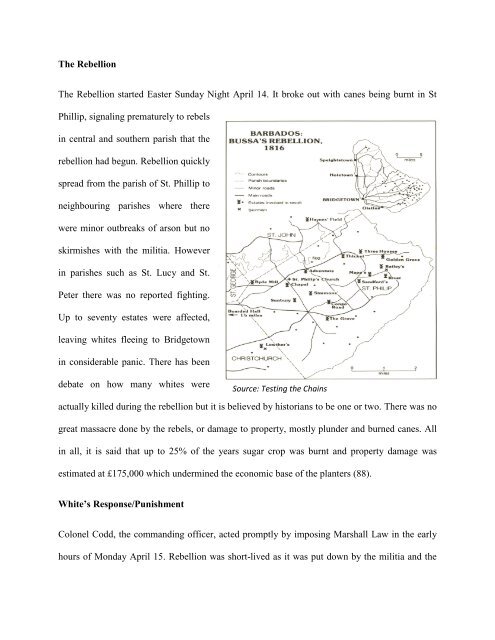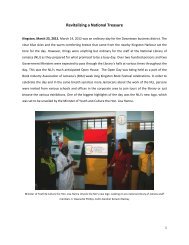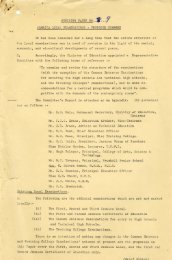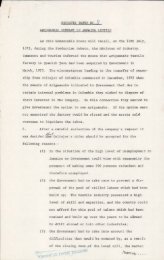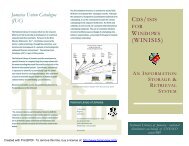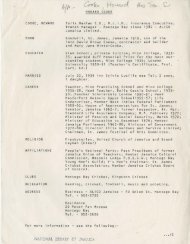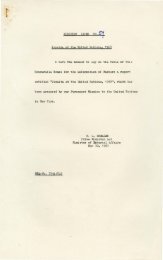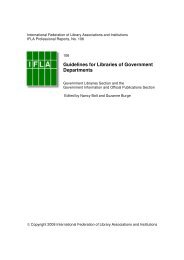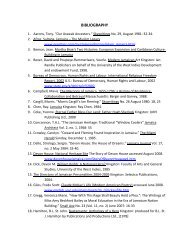The Emancipation Wars
The Emancipation Wars
The Emancipation Wars
You also want an ePaper? Increase the reach of your titles
YUMPU automatically turns print PDFs into web optimized ePapers that Google loves.
<strong>The</strong> Rebellion<br />
<strong>The</strong> Rebellion started Easter Sunday Night April 14. It broke out with canes being burnt in St<br />
Phillip, signaling prematurely to rebels<br />
in central and southern parish that the<br />
rebellion had begun. Rebellion quickly<br />
spread from the parish of St. Phillip to<br />
neighbouring parishes where there<br />
were minor outbreaks of arson but no<br />
skirmishes with the militia. However<br />
in parishes such as St. Lucy and St.<br />
Peter there was no reported fighting.<br />
Up to seventy estates were affected,<br />
leaving whites fleeing to Bridgetown<br />
in considerable panic. <strong>The</strong>re has been<br />
debate on how many whites were<br />
Source: Testing the Chains<br />
actually killed during the rebellion but it is believed by historians to be one or two. <strong>The</strong>re was no<br />
great massacre done by the rebels, or damage to property, mostly plunder and burned canes. All<br />
in all, it is said that up to 25% of the years sugar crop was burnt and property damage was<br />
estimated at £175,000 which undermined the economic base of the planters (88).<br />
White’s Response/Punishment<br />
Colonel Codd, the commanding officer, acted promptly by imposing Marshall Law in the early<br />
hours of Monday April 15. Rebellion was short-lived as it was put down by the militia and the


